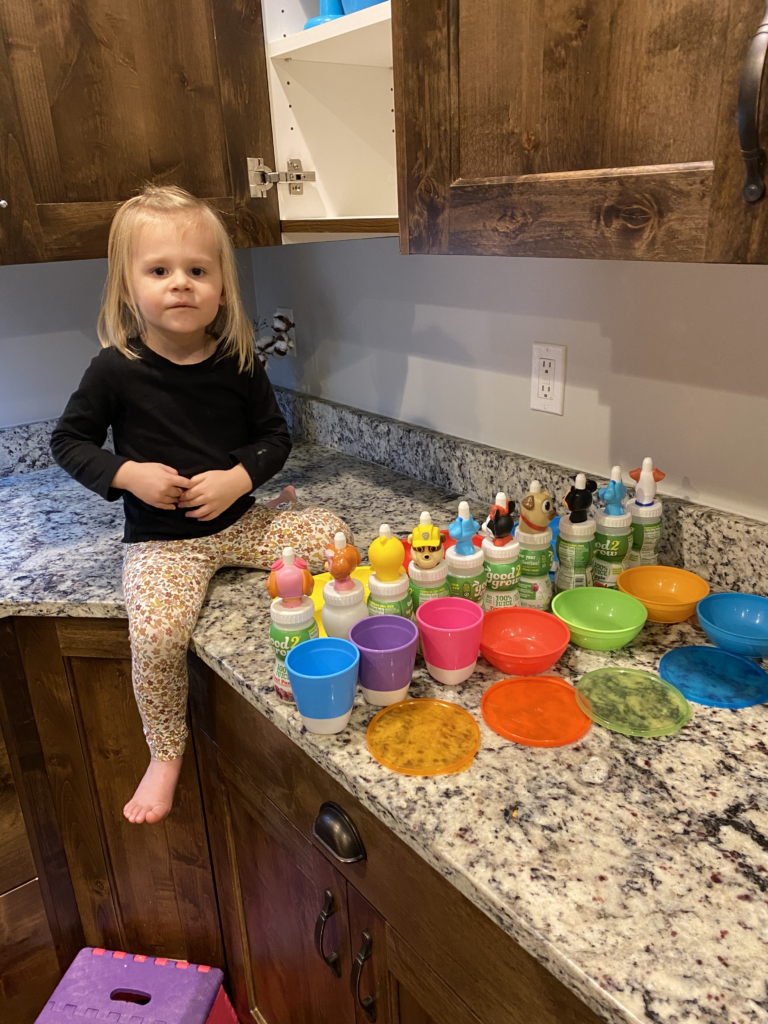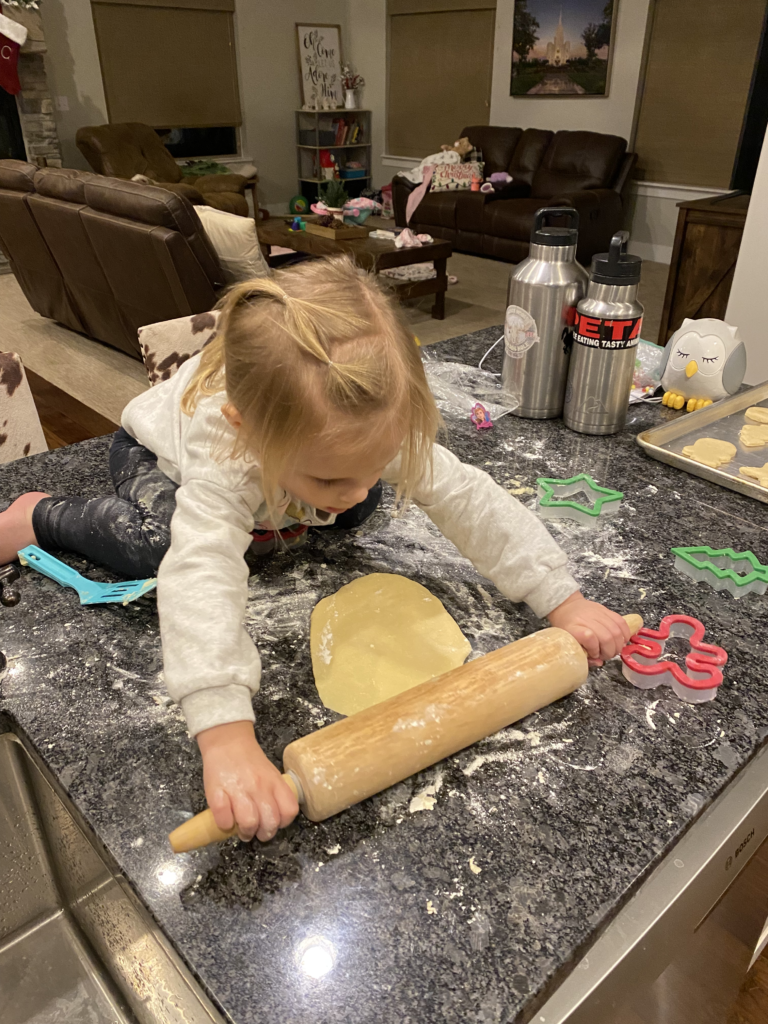Am I Raising Perfectionist Children?
Hattie and I are getting her baby ready for bed. I am helping her dress the baby in pajamas (that she will clearly need my help with, but her stubborn attitude and need to do things herself is getting in the way…insert eye-roll). When I hear the words come out of her sweet, innocent, three-year-old mouth, I instantly feel sick to my stomach. As she is getting the last velcro strap fastened, she says, “There. This is just perfect.” My biggest fear of raising perfectionist children just made itself a reality.
The room is spinning, as I realize those are the direct words that I say to her on a daily basis. I HATE the word perfect, because I have struggled with perfectionism since I was a young girl. My goal and intention was to always be mindful about NOT raising perfectionist children. I could kick myself. What have I done?
The rest of the week, I notice that I not only use the word “perfect” to define simple tasks at home, but I’m also using it with my students. 😱 I feel entrusted with my students just as much as I do my own children, and their parents are counting on me to raise them while they are at school in my care. I quickly realize something has to change. NOW!
What is Perfectionist Personality?

I see so much of myself in Hattie. She is born with the innate desire to be precise and calculated. Everything has to be “just-so.” She dreams big, but gets so frustrated when she makes a mistake or can’t get something right on the first try. But she also has this beautifully, wonderful, wild side to her….and I LOVE it so much. I never want her to lose her sense of bravery and independence. So I have had to change my approach to parenting her. I know her perfectionist personality could easily overshadow her brave side someday, and perfectionist children grow up to be perfectionist adults with high stress and less achievement.
Other warning signs of perfectionism that I have experienced myself or have seen in the students I teach include: low self-esteem, fear of failure and trying new things, overly-critical of self, and dangerous levels of not accepting anything less than perfect.
How to Help with Perfectionism in Children
So how do we combat this as a parents and educators?

1. STOP using the word “perfect” altogether.
Eliminate it from your vocabulary, and instead, use phrases like:
- “You worked so hard!”
- “This is good enough.”
- “Keep going.”
2. Help your child understand the power of “YET.”
When they use the word “can’t,” simply reply, “You can’t do it….yet!” This helps perfectionist children realize that learning and growth is a process that takes time. With effort, goals and hard tasks can be achieved.

3. Model that mistakes are okay, and have fun making them.
If you are a perfectionist like me, this is going to be extremely hard for you, but think about all of the heartache it will save your sweet little ones. Here are a few things that I am doing to model “imperfect” behavior.
- Laughing when things go wrong instead of overreacting and getting upset. (Like when the whole box of Cheerios spills all over the floor.
- Not “playing” perfect when we are playing together. I always want to build the Legos like the picture on the box, or color in the lines, keep the Play-Doh colors separate, or put the pretend cold food in the fridge. (I know…I have a problem! 🤣)
- Using growth-mindset language: “If I keep trying, I’ll get it!” “Mistakes help me learn.” “What am I missing?” “I believe I can get better.” “Who can I ask for help?”
- Letting Hattie make mistakes and be messy. As parents, we are quick to step in, but mistakes are critical for learning natural consequences and trying a new approach. We have to be okay letting them fall so they can learn to bounce back and keep trying.
I hope these tips help in your home. You are doing an amazing job, mama!

If you are looking for more tips and strategies to help your perfectionist children, check out this post from Big Life Journal.
